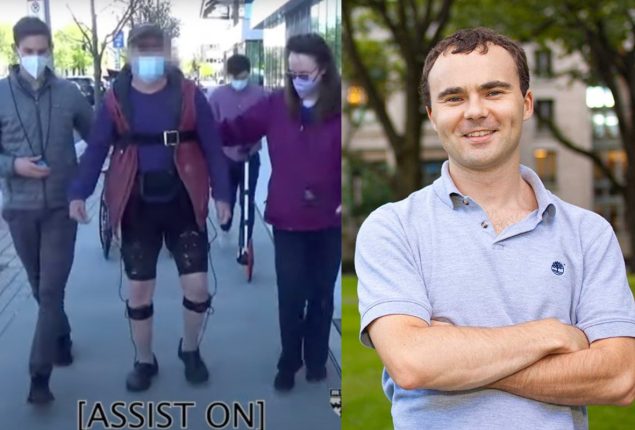Elon Musk’s Drug Use Raises Concerns at Tesla, SpaceX
Concerns at Tesla, SpaceX over Elon Musk's alleged drug use. Wall Street...

Robotic Exoskeleton Enhances Walking for Parkinson’s Patients
In a groundbreaking development, researchers from Harvard and Boston University have unveiled a soft robotic exoskeleton designed to address the challenging symptom of freezing in individuals with Parkinson’s disease. The study, published in Nature Medicine, showcases the potential of this innovative technology to significantly improve the mobility of those affected by the debilitating neurological disorder.
The soft robotic exoskeleton, developed by Harvard professor Conor Walsh and his team at the Biodesign Lab, was tested on a 73-year-old man with Parkinson’s who experienced freezing episodes more than 10 times a day. Over the course of six months, the researchers observed remarkable improvements in the patient’s ability to walk, both indoors and outdoors.
The key issue addressed by the robotic exoskeleton is the freezing phenomenon, a common challenge for individuals with Parkinson’s disease. This symptom causes people to lose their footing while walking, resulting in shortened steps and, eventually, a complete stop. Current solutions for freezing are limited in their efficacy, ranging from medications to physical therapy and surgery.
The soft robotic apparel provided instantaneous relief for the patient, eliminating freezing episodes while walking indoors. The individual was also able to walk further and faster, achieving a level of mobility that was previously hindered by the neurological condition. Notably, the effects were observed without any special training, marking a significant advancement in the field.
Harvard professor Conor Walsh commented, “We found that just a small amount of mechanical assistance from our soft robotic apparel delivered instantaneous effects and consistently improved walking across a range of conditions for the individual in our study.”
The Biodesign Lab, known for previously designing an exosuit for stroke patients, has shown promise in its early results with this soft robotic exoskeleton for Parkinson’s patients. The technology, if further validated, holds the potential to follow in the footsteps of the lab’s previous success and eventually reach commercialization.
This breakthrough in soft robotic exoskeleton technology brings new hope to individuals living with Parkinson’s disease, offering a transformative solution to enhance their walking abilities and overall quality of life.
Catch all the Sci-Tech News, Breaking News Event and Latest News Updates on The BOL News
Download The BOL News App to get the Daily News Update & Follow us on Google News.